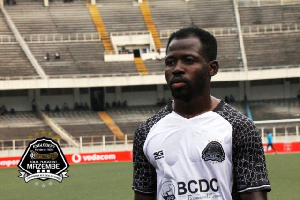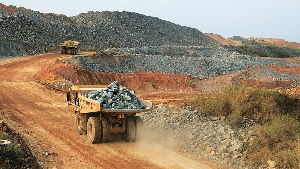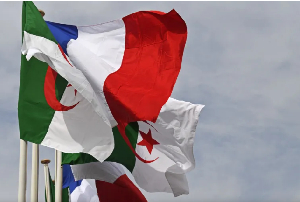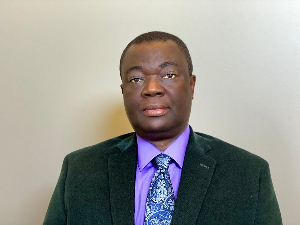by: Ben Ofosu-Appiah
On a recent visit to Ghana, I had the opportunity to travel extensively within the country. For the first time, I did not visit your fancy towns like Obuasi, Akosombo, Elmina etc the usual tourist spots but decided to spend time visiting rural Ghana across the length and breadth of the country. In most cases, I was shocked at the extent of poverty I saw around me. Poverty and extreme poverty everywhere. Poverty is an unacceptable human condition that needs to be addressed at all cost.
Poverty is characterised by a lack of access to essential goods, services, assets, credits, and opportunities to which every human being is entitled to. Everyone should be free from hunger, should be able to live in peace and should have access to basic education and primary health care. Poor households need to sustain themselves by their labour and be adequately rewarded and should have reasonable protections from external shocks. In addition, individuals and societies that are poor tend to remain so if they are not empowered to participate in the decisions that shape their lives. Majority of people living in rural Ghana fit into the World Bank?s classification of extreme poverty. Extreme poverty defined by the World Bank as getting by on an income of less than $1 a day, means that households cannot meet basic needs for survival. They are chronically hungry, unable to get health care, lack safe drinking water and sanitation, cannot afford education for their children and perhaps lack rudimentary shelter- a roof to keep rain out of the hut- and basic articles of clothing like shoes. All these played out in my daily interactions with many of our people living in the rural areas and I saw it first hand. Nowhere is this trend so acute as in Northern Ghana. There is a complete absence of credit facilities for the rural poor, many children of school going age are not in school because they cannot afford to be there, they lack access to good drinking water, and primary health care. The situation is alarming.
The World Bank estimates that 1.1 billion people live in extreme poverty. Though Asia leads in numbers, Africa has the largest proportion, nearly half of its population live in extreme poverty. And in fact Africa is the only region in the World where the number has doubled in the last twenty years. While the situation with respect to poverty reduction has gotten better in the rest of the World, in Africa it has gotten worse! The plight of Africa has been described by Carol Bellamy, head of UNICEF, as the perfect storm of human deprivation, one that brings together climatic disaster, impoverisment, the AIDS pandemic and the long standing burdens of malaria, schistomiasis and other diseases. The Ghanaian situation mirrors the African situation as a whole.
The nature of poverty is complex and its causes diverse but there is an urgent need to launch an assault on rural poverty in Ghana. This is not to say there is no urban poverty in Ghana, of course there is, one need to visit Nima for example, to see things for himself but the situation in rural Ghana is much worse. Because most people in rural Ghana are living with poverty that kills. There is no other part of the country where the need to address poverty is as urgent as in the rural areas. Poverty in rural Ghana is driving mass migration into the cities and fueling lawlessness and violence. Economic crisis, high inflation, unemployment, lack of credit facilities to engage in productive ventures, and an old fashioned educational system that fails to respond to and meet the needs of the modern global economy are pitching millions into poverty who were previously making gains.
To address this problem the government should embark on a robust and sustained, pro poor growth that aims at sustaining basic services to the poor, like provision of good drinking water, electricity and primary health care in the short term. There should also be programs to encourage poor children to go to school and stay in school. In the medium term, targeted interventions like offering micro credit financing to help people set up their own businesses, and increased rural credit facilities for cash starved farmers to expand their farms with improved farming techniques and fertilizers. Extending irrigation facilities to all agricultural lands will boost rural employment. In the long term attention should be on programs to build human capital. Stimulate pro poor growth and encourage the private sector to create more jobs to supplement government?s efforts. With increased spending on anti-poverty measures like bolstering the education system, infrastructure, housing, nutrition, and health care especially in rural Ghana, it is possible to launch a direct assault on poverty and unemployment. The emphasis on health, education and fighting poverty will mean increased economic opportunities and spending power eventually. Previous efforts at poverty reduction meant money down the drain because of corruption and mismanagement. The government should therefore have an effective monitoring and evaluation mechanism in place to check abuse. You need an efficient bureaucracy to handle this. The Ghanaian bureaucracy is corrupt but a good leadership can extract results from an inefficient bureaucracy. A horse is as good as the rider.
Ghana is poor despite all the natural resources because we are unable to give our children good basic education, we are not able to impart relevant skills that matter most in the 21st century to our young men and young women, and as a result we are unable to get productive work out of them. In addressing extreme poverty, the government should think of reforming the educational system to place more emphasis on the acquisition of relevant technical skills and also improving basic education. The attention now is on the poor but the middle class should not be ignored. The overall objective is to enable as many as possible to join that class. Currently the middle class in Ghana is suffocating under a huge burden of taxes. They are in fact overburdened with taxes. So the government should consider cutting and streamlining taxes to spur growth and should launch bold moves to open up the economy and make it an attractive destination for foreign direct investment. The sharpest reduction in poverty will come about when not the government spend most but when the economy grows the most.















